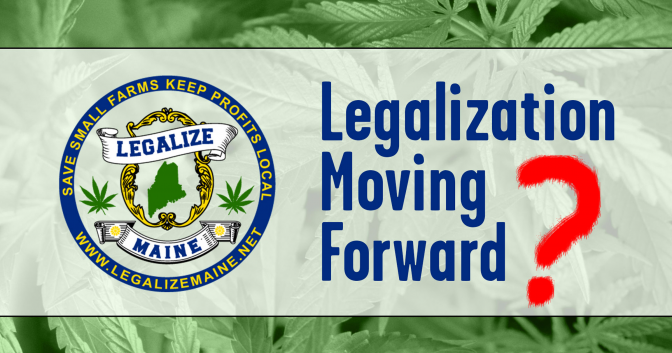Maine Governor Vetoes Marijuana Regulations, Leaving Commercial Legalization on Hold

On Nov. 3, Maine Gov. Paul LePage vetoed a bill that would’ve set up regulations for legal sales and cultivation of marijuana under the Marijuana Legalization Act, the ballot initiative state voters approved in 2016. The state House sustained the veto three days later when it voted 74-62 to override LePage’s veto, 17 votes short of the two-thirds majority needed. A special legislative committee had been working on the regulations for more than nine months.
“I feel like we legalized gasoline, but not gas stations,” Rep. Martin Grohman told the Portland Press-Herald.
The veto does not prevent adults from legally possessing or giving away up to 2.5 ounces of marijuana. But without the regulations proposed in the bill—a tax structure and licensing for stores, cultivators, product manufacturers and testing companies—the opening of legal pot stores will be delayed. Maine currently has a moratorium on retail sales until February 1.
Gov. LePage cited the conflict between state and federal law, lack of consistency between the state’s medical and recreational programs, and unnecessarily high regulatory costs as the reasons for his veto. “Even if federal law were of no concern, there are other significant issues that must be addressed,” he wrote in his veto message. “The dangers of legalizing marijuana and normalizing its use in our society cannot be understated.”
“I think we can all agree that law is flawed,” Republican state senator Roger Katz, who helped draft the bill, told the Press-Herald on October 29. “Going back to that would be chaos and confusion. We’ll be throwing oxygen on the fire of the black market. It will be the wild, wild West in Maine. How could anybody want that? Our bill, it’s not perfect, but it’s much, much better than that.»
In October 2016, during the Question 1 campaign, LePage called marijuana “deadly” and said that “people addicted to marijuana are three times more likely to be addicted to heroin.” Asked about how he was dealing with heroin use at a town-hall meeting earlier in the year, he responded that Afro-Americans were causing the problem: “These are guys with the name D-Money, Smoothie and Shifty. They come from Connecticut and New York. They come up here, they sell their heroin, they go back home. Incidentally, half the time they impregnate a white girl before they leave.”
LePage, who was elected in 2010 and again in 2014, has one year left as governor. One of the candidates vying to succeed him is former state Rep. Diane Russell, a Portland Democrat who introduced several unsuccessful bills to legalize cannabis during her eight years in the House.
“Not only does this veto yet again overturn the vote of the people, delaying the legal commercial market sends new sales to same black market we’re trying to eliminate,” Russell tells Freedom Leaf. “This is precisely why we need to elect governors who are pro-cannabis and pro-voter.”
If you enjoyed this Freedom Leaf article, subscribe to the magazine today!

